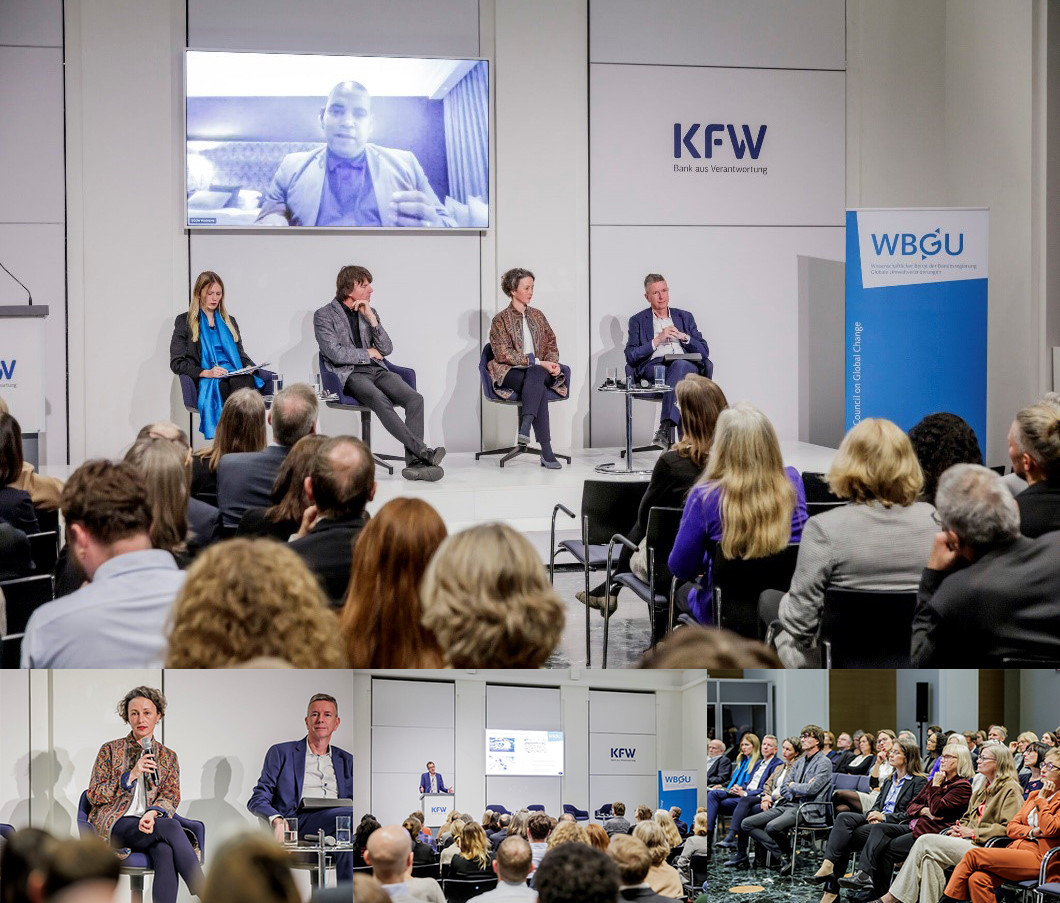The German Advisory Council on Global Change (WBGU), with Council member Prof. Anna-Katharina Hornidge, publishes the new report: “Water in a heated world”.

National and international water policy must adapt to ongoing, accelerated changes in the global water cycle and respond to them quickly and comprehensively. This is the key message of the report of the German Advisory Council on Global Change (Wissenschaftlicher Beirat der Bundesregierung Globale Umweltveränderungen – WBGU) ‚Water in a heated World‘ which the WBGU presented to Federal Minister for the Environment Steffi Lemke and the Parliamentary State Secretary to the Federal Ministry of Education and Research, Mario Brandenburg, on 11 October 2024 in Berlin. The flagship report is the result of the perennial work of the WBGU with its Council members, including Prof. Anna-Katharina Hornidge.
Following to the publication of the report, WBGU/KfW bank organised the launch event „Water: At the limits of controllability?“ discussing the new report. The program started with welcoming words from Christiane Laibach, Member of the Board of Managing Directors of KfW Bankengruppe and a keynote by Parliamentary State Secretary Dr Bettina Hoffmann. Prof. Jörg Drewes (TU München, advisory board member of WBGU) presented the flagship report of the WBGU: „Water in a heated World“.
In the panel discussion that followed, Prof. Hornidge was joined by Alderman Eddi Andrews (Deputy Mayor of the City of Cape Town), Dr Alexander König (CEO of Hannoversche Rückversicherung) and Dr Johannes Cullmann (Federal Institute of Hydrology and Director of the IHE Delft Institute for Water Education) to discuss the limits of controllability in the context of water resources in a heated world. Prof. Hornidge reminded the audience that 2.2 billion people (one in four people worldwide) live without safe access to drinking water and 3.5 billion people (that means two in five people) live without safe access to sanitation. Prof. Hornidge reported that Germany is doing relatively well in terms of achieving SDG 6 regarding most targets. However, she stressed, this is dramatically different when it comes to virtual water, i.e. water bound in products imported by Germany. Not only is there no progress to be observed in this area, but international negative spillovers are even increasing.
Germany is called upon to move forward, also in name of its international credibility, and to drastically reduce its virtual water imports, particularly from water-scarce regions. Prof. Hornidge also called for emphatic German support for the UN water process. She called the UN Special Envoy on Water from 1 November 2024 a great gain and an opportunity for Germany and Europe to expand their relations with Indonesia, including in the context of the preparations for the UN Water Conference in December 2026, which will be jointly hosted by Senegal and the United Arab Emirates, and to work together to achieve the water goals.

The WBGU: science for a sustainable future
The German Federal Government set up the German Advisory Council on Global Change (WBGU) as an independent, scientific advisory body in 1992 in the run-up to the United Nations Conference on Environment and Development (Rio Earth Summit). The WBGU’s task is to analyse global environmental and development problems and to develop recommendations for action and research in the quest for solutions to these problems. Karen Pittel and Sabine Schlacke are currently the two chairs of the WBGU.

Schreibe einen Kommentar